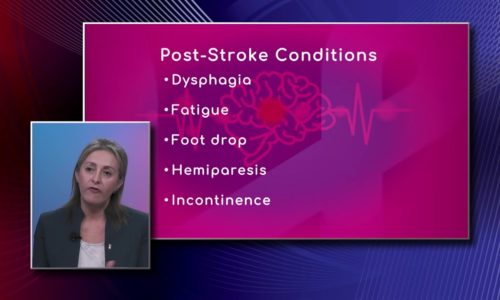High Cholesterol: Myths & Facts |
Genetic and family history are very important in cases of high cholesterol. Sometimes, patients are active, have a clean-eating diet and they’re healthy but they still have high blood pressure or high cholesterol, says Dr. Deepa Sharma, Family Medicine Physician with Baptist Health Primary Care.
If there is a family history of early cardiac issues or problems, patients will be referred to a cardiologist.
Having cholesterol under control can help people be healthier, she says.
Transcript
From a doctor’s perspective how important is a genetics I mean this also is that help you understand about patients at a higher risk let’s say up having a high cholesterol risk for high cholesterol yeah it’s so family history is really important for us to know about and I have a lot of patients who were very healthy and they are active and they eat clean and they may still have high blood pressure or high colesterol and it’s very concerning because they’re you know they’re doing all the writings and so there we talked a little bit about the genetics and the family history certainly if there is a strong family history of early cardiac issues or problems a lot of times will refer you straight to a cardiologist who will do more advanced testing to determine if you are at greater risk or need kind of some preventative medications and it’s that’s one of the myths is that just because you maybe have an active lifestyle or you are not overweight you eat healthy it doesn’t necessarily mean you’re out of the woods that is correct absolutely I have many patients who are active symptom-free and are very surprised when they learn about their numbers and so sometimes you know it is important to keep in mind that there’s a family history that can play a part of this and like I said at the beginning just having a sense of where you stand and knowing and knowing those numbers now how does cholesterol tie into some of the other vital signs that you check for so when we’re using the vital signs we use those numbers to help us determine how that cholesterol needs to be managed so if your blood pressure is high but controlled we want to make sure that your cholesterol is also the same if your blood pressure is high and uncontrolled you know that’s an independent cardiovascular risk factor so we want to make sure that we are tightly controlling your cholesterol as well certainly depending on how conditioned you are we want to make sure that you’re staying active and your and your pulse is also health you








